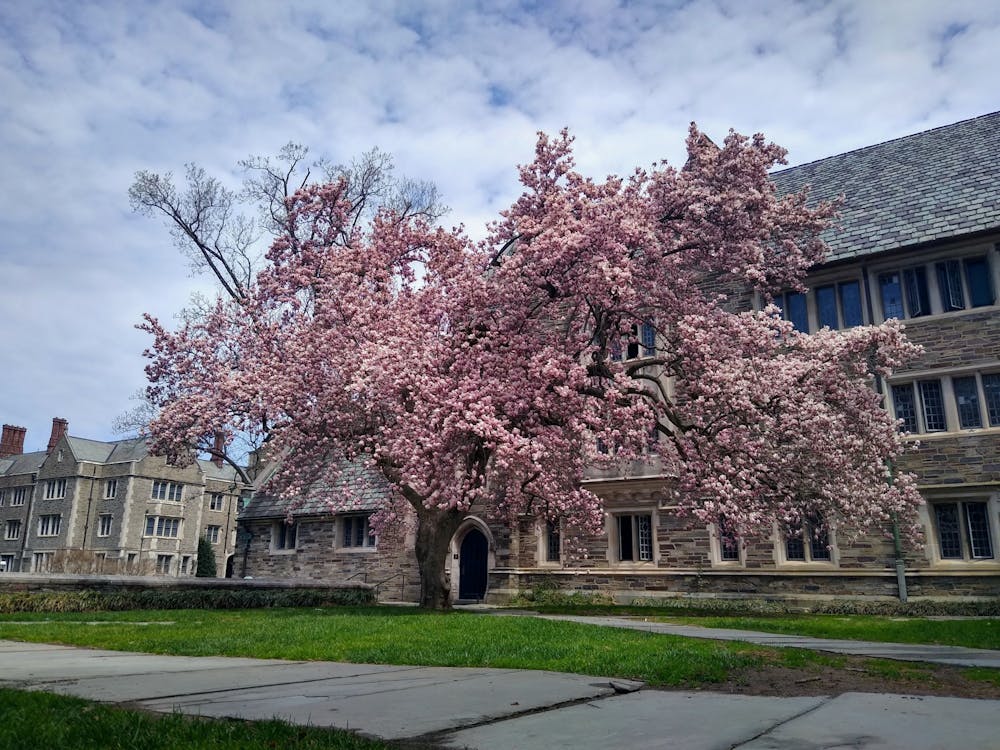We give ourselves to the future everyday. It is our hope that as the future inches closer, our masks will be enough, our vaccines will be enough, and our trust in each other will be enough. Now, Princeton is open. Friends pull in chairs to crowded tables, professors raise voices to quiet lecture halls, and music echoes throughout weekend nights. Yet the haunting fear remains. Will this “normal” last?
In the face of uncertainty, we should embrace critical hope. While we attend a university equipped to meet the current challenges of the pandemic, we must account for dangers that linger. Yet, these responsibilities do not have to keep us from experiencing the moments we missed.
For now, the “Orange Bubble” has not popped. Contract tracing reveals no on-campus transmission and the risk assessment for our community hangs at a level of “low-to-moderate.” These successes exist against a backdrop of Princeton’s vaccine requirements, masking policies, and an immense testing regime.
But what works today may not work tomorrow. We are distressingly aware of new variants, breakthrough cases, and far-right politics that threaten public health. It may just be that at some arbitrary point in the coming months, by a convergence of events predictable and not, our “new normal” will slip from our grasp.
Indeed, the fact that our lives may upend at any moment has always been true. It was true before that week in 2020 when the world seemed to end. This year saw the 20th anniversary of Sept. 11 and the 10th anniversary of the year my four uncles suddenly passed. The fragility of our global community and personal lives remains an unfortunate reality, the reminders of which we dread.
To accept this “essential unknowability of the world,” as Solnit writes, is not an admission of despair. It is a component of critical hope. Hope is “not the belief that everything was, is, or will be fine.” Instead, hope is realistic, forward-looking, and constructive. By accounting “for complexities and uncertainties,” hope “invites and demands” us to influence our own future.
So what does our future hold? Will this “normal” last? We cannot know. We can, however, hope. We can accept uncertainties and still dare to influence the future. It is uncertain if classes will remain in person; it is uncertain if we will return home; it is uncertain how many of us will contract COVID-19. Yet we can and must influence these outcomes. The well-being of our community depends on it.
“Engage with our new normal responsibly,” writes Assistant Opinion Editor Genrietta Churbanova in a recent column. On campus, these responsibilities present the peculiar reminder that the pandemic exists. At times, some may feel these responsibilities are inconvenient. Masks inside. Guest restrictions. Testing every week.

That frustration has real roots. We want more than the “new normal” — we want normal. But these responsibilities play a crucial role in maintaining the hope that our year proceeds as planned.
We have much to do. We returned to encounter a litany of things lost: a campus of people, clubs, and classes. Yet ambivalence remains. To attend gatherings or not, to go off-campus or not, to stay inside or not at the slightest dry throat. Caught between possibility and anxiety, one wonders when to take chances.
Nobody can answer these questions for someone else. But as this “new normal” continues to take its first tentative steps, we might find courage in vaccines, testing, and decreasing cases. It cannot be hard times forever.
At least, one can hope.

David Palomino is a junior in the politics department from Los Angeles, Calif. He can be reached at davidap@princeton.edu.








